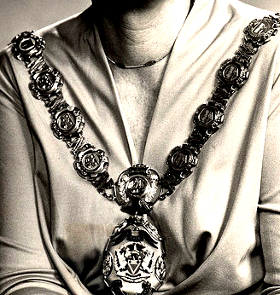Two-term mayoral move coming in NSW
 The NSW Government is moving to extend mayors’ terms to two year, to end the revolving door of council leaders in the state.
The NSW Government is moving to extend mayors’ terms to two year, to end the revolving door of council leaders in the state.
Reports say the state’s one-year mayoralty tends to be divided up by political rivals in a system of ‘horse trading’ at most councils.
It means there is often three or four mayors per council over the four years between elections.
But the State Government says it is set to introduce two-year fixed terms as the new minimum from next September.
Local Government Minister Paul Toole has explained the reasoning at a Budget Estimates hearing.
“It worries me that mayors change year after year,” he said.
“It means a lack of continuity and a lack of decision-making in those communities.
“It is important for stakeholder relationships that that be changed to a two-year fixed term.”
There will be no change at Sydney councils that have already brought in directly elected mayors for four years.
Local Government NSW president Keith Rhoades says two year terms are a sensible reform, but elected mayors should only be decided via a community referendum.
“The upside of a four-year term is that you can have an agenda of projects you want implemented and work towards them,” Mr Rhoades said.
“The downside is that you can be a popularly elected mayor and not enjoy the support of your own council.
“But with the one year term, the common saying is you spend the first six months doing the job, and the second six months trying to appease those who put you there so they’ll put you back there again.”
The NSW Opposition wants all councils to directly elect their mayors.
“The current horse trading between parties to decide who becomes mayor completely cuts out any community input,” Opposition leader Luke Foley said.
“Popularly elected mayors with four year terms is a common sense, democratic reform which would lift the standard of mayoral leadership and give the community the voice and certainty they deserve.”








 Print
Print